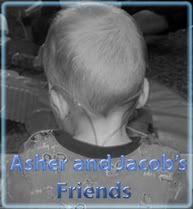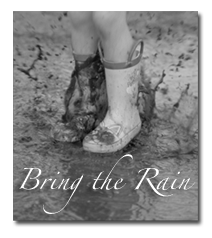I found this video, while kind of silly, to be incredibly moving.
Sunday, September 27, 2009
Saturday, September 19, 2009
All are welcome
There are few in this world today who do not love children. The presence of a baby can make the heart of just about anyone melt. When a young toddler yell’s hi as we walk down the aisle at the supermarket it is impossible not to say hi back. When a kindergartener says something so funny you cannot help but to laugh. Children are a vital part of our community and of our lives.
This is one of the reasons so many love the stories of Jesus with the children. We have all probably seen dozens of different images of Jesus surrounded by children. There are beautiful images of Jesus swinging a small child around, laughing along with him. I’ve seen wonderful artists portrayals of Jesus cradling a baby in his arms. Jesus loves children just as we all do. So when we hear about Jesus taking a small child and speaking to his disciples about welcoming a child, our hearts tend to melt a little.
What is so fascinating about our Gospel passage for today is there are so many layers that need to be unraveled. Like most scripture, we cannot take it at face value. If we were to apply this passage to our own culture, we would view the children as a welcomed part of the community. We would think of how easy it is to welcome a child, as we do so all the time.
The interesting component to this is during Jesus’ time, children were not as welcome as they are today. In fact, young children were viewed as useless and in the way. They were disposable commodities within their culture. Part of this had to do with the fact that many children did not live very long. The other part had to do with young children not being of working age. Since they had little to contribute to society, they were viewed as almost sub-human until they reached an age where they could work.
The focus of our Gospel text for this Sunday is one that speaks to welcoming the invisibles of this world. Jesus tells us that the kingdom of heaven is indeed counter-cultural. Jesus is to be seen in small children, in the lepers, in the tax collectors. Jesus is even to be seen on a cross and here again he announces his impending death to the disciples. These lessons are difficult to accept for his disciples, and can often be difficult for us to hear today.
Here, Jesus calls his disciples, and ultimately us, to humble ourselves. The disciples had been fighting over who is the greatest, who would take over after Jesus was gone. Jesus takes this argument and tells them no one is the greatest.
Just like any good parent or teacher he tells them we are all equal. We are all saint and sinner, no one is greater than the other. We are to view ourselves the same as we view the invisibles of our community. We are to humble ourselves and welcome the child, eat with the criminal, shake the hand of the tax collector. We are to view each other as brothers and sisters in Christ, as Christ can be seen in each of us.
So often this text and other texts like it become a rags to riches kind of story. They are told in a way where the least become the greatest, the underdog becomes the winner and receives the trophy. But really, Jesus’ teaching here is so much more than that. It is not about becoming the underdog so we can get the reward. Rather, Jesus is telling us that we are to humble ourselves, not bickering about who is the greatest. No, we are to humble ourselves in turn recognizing that we are all equal in the eyes of God. We are to humble ourselves, not so that we get the reward, but because we are called to be humble. We are called to view ourselves and the child as brothers and sisters in Christ Jesus.
We are not to be chasing after power or greatness. We are not to be placing ourselves on a pedestal as being the better Christian or more worthy to come to the communion railing. We are not to be working towards reaching a certain social status so that we have the better homes, better cars, better phones, or better clothes. We are called to reject all of these things as contrary to the kingdom of God.
None of these things matter to God’s kingdom. As is so often said, you can’t take a suitcase to heaven. Jesus tells us in this passage to stop worrying about worldly things. We are to focus on what is important, what really matters in the bigger picture. We need to stop chasing after the things of this world; instead we are to follow the way of the cross. We are to be following in the way of the cross that seemed so repulsive to Peter and to all who would use power to reinforce social barriers and hierarchies that keep folks from seeing one another as children of God.
A student at Luther seminary recently shared the following story about a woman she met in Kenya named Doris. She lives in the poorest slum in Kenya, in a tiny shack made out of cardboard, and the slum she lives in is "guarded" by corrupt police officers who are always trying to get bribe money. She welcomed her grandchildren into her home to live (no one knows if their parents were alive or not). Her grandchildren are HIV positive and she contracted the disease from them.
She faithfully walks with them for 2 hours each way every Sunday to bring them to church, and Doris makes the walk by herself each week to go to a support group at church for people living with HIV/AIDS. She welcomed the visiting college students, all white Americans into her home, even though doing so was dangerous to her life because it drew the attention of the police, who asked for a bribe that our group refused to give. The police could have thrown her in jail, or worse. The students also drew the attention of her neighbors, who might have thought that since she had white people visit, she must have more wealth than they thought, and they could have robbed her and hurt her.
Doris’ story is an example to us of what it means to walk the way of the cross. It is to humble oneself, to take risks, by welcoming the outcasts of the community. For Doris, we knew the risk she was taking by welcoming white people into her home. And yet she knew that is what Jesus calls us to do. She knew that the students were her brothers and sisters in Christ, and so she welcomed them, just as Jesus called the disciples to welcome a small child. For whoever welcomes one such child in my name welcomes me.
The call for us, brothers and sisters, is to recognize that we are all a part of this great family following the path of the cross. We are a family called to take down the barrier of the labels such as invisible or outcast. We are to take down the walls that divide us, recognizing that no one is worthy of the kingdom of God, yet Christ still suffered for our sins and he still welcomes us to the banquet feast. We are to welcome each other, knowing that we are all saints and we are all sinners, and journey together on the road of humility towards the cross. Amen.
This is one of the reasons so many love the stories of Jesus with the children. We have all probably seen dozens of different images of Jesus surrounded by children. There are beautiful images of Jesus swinging a small child around, laughing along with him. I’ve seen wonderful artists portrayals of Jesus cradling a baby in his arms. Jesus loves children just as we all do. So when we hear about Jesus taking a small child and speaking to his disciples about welcoming a child, our hearts tend to melt a little.
What is so fascinating about our Gospel passage for today is there are so many layers that need to be unraveled. Like most scripture, we cannot take it at face value. If we were to apply this passage to our own culture, we would view the children as a welcomed part of the community. We would think of how easy it is to welcome a child, as we do so all the time.
The interesting component to this is during Jesus’ time, children were not as welcome as they are today. In fact, young children were viewed as useless and in the way. They were disposable commodities within their culture. Part of this had to do with the fact that many children did not live very long. The other part had to do with young children not being of working age. Since they had little to contribute to society, they were viewed as almost sub-human until they reached an age where they could work.
The focus of our Gospel text for this Sunday is one that speaks to welcoming the invisibles of this world. Jesus tells us that the kingdom of heaven is indeed counter-cultural. Jesus is to be seen in small children, in the lepers, in the tax collectors. Jesus is even to be seen on a cross and here again he announces his impending death to the disciples. These lessons are difficult to accept for his disciples, and can often be difficult for us to hear today.
Here, Jesus calls his disciples, and ultimately us, to humble ourselves. The disciples had been fighting over who is the greatest, who would take over after Jesus was gone. Jesus takes this argument and tells them no one is the greatest.
Just like any good parent or teacher he tells them we are all equal. We are all saint and sinner, no one is greater than the other. We are to view ourselves the same as we view the invisibles of our community. We are to humble ourselves and welcome the child, eat with the criminal, shake the hand of the tax collector. We are to view each other as brothers and sisters in Christ, as Christ can be seen in each of us.
So often this text and other texts like it become a rags to riches kind of story. They are told in a way where the least become the greatest, the underdog becomes the winner and receives the trophy. But really, Jesus’ teaching here is so much more than that. It is not about becoming the underdog so we can get the reward. Rather, Jesus is telling us that we are to humble ourselves, not bickering about who is the greatest. No, we are to humble ourselves in turn recognizing that we are all equal in the eyes of God. We are to humble ourselves, not so that we get the reward, but because we are called to be humble. We are called to view ourselves and the child as brothers and sisters in Christ Jesus.
We are not to be chasing after power or greatness. We are not to be placing ourselves on a pedestal as being the better Christian or more worthy to come to the communion railing. We are not to be working towards reaching a certain social status so that we have the better homes, better cars, better phones, or better clothes. We are called to reject all of these things as contrary to the kingdom of God.
None of these things matter to God’s kingdom. As is so often said, you can’t take a suitcase to heaven. Jesus tells us in this passage to stop worrying about worldly things. We are to focus on what is important, what really matters in the bigger picture. We need to stop chasing after the things of this world; instead we are to follow the way of the cross. We are to be following in the way of the cross that seemed so repulsive to Peter and to all who would use power to reinforce social barriers and hierarchies that keep folks from seeing one another as children of God.
A student at Luther seminary recently shared the following story about a woman she met in Kenya named Doris. She lives in the poorest slum in Kenya, in a tiny shack made out of cardboard, and the slum she lives in is "guarded" by corrupt police officers who are always trying to get bribe money. She welcomed her grandchildren into her home to live (no one knows if their parents were alive or not). Her grandchildren are HIV positive and she contracted the disease from them.
She faithfully walks with them for 2 hours each way every Sunday to bring them to church, and Doris makes the walk by herself each week to go to a support group at church for people living with HIV/AIDS. She welcomed the visiting college students, all white Americans into her home, even though doing so was dangerous to her life because it drew the attention of the police, who asked for a bribe that our group refused to give. The police could have thrown her in jail, or worse. The students also drew the attention of her neighbors, who might have thought that since she had white people visit, she must have more wealth than they thought, and they could have robbed her and hurt her.
Doris’ story is an example to us of what it means to walk the way of the cross. It is to humble oneself, to take risks, by welcoming the outcasts of the community. For Doris, we knew the risk she was taking by welcoming white people into her home. And yet she knew that is what Jesus calls us to do. She knew that the students were her brothers and sisters in Christ, and so she welcomed them, just as Jesus called the disciples to welcome a small child. For whoever welcomes one such child in my name welcomes me.
The call for us, brothers and sisters, is to recognize that we are all a part of this great family following the path of the cross. We are a family called to take down the barrier of the labels such as invisible or outcast. We are to take down the walls that divide us, recognizing that no one is worthy of the kingdom of God, yet Christ still suffered for our sins and he still welcomes us to the banquet feast. We are to welcome each other, knowing that we are all saints and we are all sinners, and journey together on the road of humility towards the cross. Amen.
Saturday, September 05, 2009
Streams in the Desert
It was 700 BC, and life had become a desert to God’s people. The world once known by the Israelite community was no more. Their lives had dried up; their emotions were spent, food had gone to waste, their city was demolished.
The people of God were now in captivity. Their capital city had been incinerated and their houses of worship were destroyed. It had been fifty years since their captivity had begun. Their young men had all been killed and the king had been blinded. All they had once called their own was now gone. Their city, their sons, their temples, their homes. Everything they loved was dried up, wasted away. Their hearts and minds had given way to a hopelessness.
These are the people whom we hear about in today’s Isaiah reading. They are God’s chosen people, living through a desert time; fifty years in the sands of captivity and sorrow. The life they had known was dried up and wasted away. All that was left of them was an empty shell of a broken heart.
The people spoken of in Isaiah’s writings are ones whom speak to the deserts we all walk through. The context in which Isaiah is writing is one that transcends culture and time. It speaks to those times we all experience when the streams of our lives have been overcome, leaving us dried up, broken down, and burned out. All that is left is the cracked clay and blowing sand.
The words of Isaiah in chapter 35 bring us to a new beginning, a promise to all of God’s people. It bridges for us a time when the prophet was sharing God’s message of judgment on the nations. It was a time of living through hard truths, heartache, and sorrow. This chapter takes us from the time of living in the dried up places and brings us into a message of promise. It is a message that takes us to the promise of a highway in the wilderness, of streams in the desert. This chapter opens to us the hope of the coming Messiah, who would deliver us from our sin and bring us to reconciliation, to grace.
Our lives can be very much like those of the Israelite people. We too live through desert times. Our lives can become dried out through the pain we encounter through sin, illness, or loss.
Our lives can become dried out through the pain of losing someone. As we quickly approach the holiday season, this truth becomes even more real. We remember our loved ones no longer with us; praying the holiday season will quickly pass and the pain of our desert will ease. We long for the streams in the desert.
The pain of desert times speaks with the endless reality of debt, loss of income, and empty cupboards. Like the Israelites who had lost their city, taking with it means of income, food, and shelter, we too live through times of economic uncertainty. While we hear all the time that money should not control our lives, inevitably the reality of living in the red makes it shadows more prominent as the bills come in. It is during those times that the sands of the desert sting our eyes, making it impossible to see past the pain.
Broken relationships, painful illness, depression, substance abuse…all of these situations have their real effect on the lives of God’s people. We all live through the dry times making our thirst more overpowering and leading us to long for relief.
Life can certainly be like a desert. Pain can lead us to paths that look much like the Saharan desert. Paths that are long, hot, and unending. Life leads us to places were God seems far away; to places where we feel alone, afraid, where love feels far off, were relief shows no sign of coming. We become the Israelites, living through times were our world feels like it has been burned away, leaving us with no place to call home; faced with only our sin and a message of judgment upon us.
The promise we hear for the Israelite people is the same promise that has been made real in our own lives. Where the deserts exist, stream will flow. Where there is only sand, flowers and plants will bloom. The eyes of the blind shall be opened, the ears of the deaf unstopped. The lame shall leap, the tongue of the speechless will sing for joy.
God makes a beautiful garden in the deserts of our lives. The message to the Israelites was made real in the Messiah, Jesus Christ. Christ came to the people whose lives had become like the desert. He healed his people such as the young child overcome by a demon. He made the lame to walk, the deaf to hear, the blind to see. Jesus came to bring blooming gardens to the desert hearts. Healing physical ailments, bringing a message of love to the prostitutes, providing a second chance to thieves and tax collectors.
Jesus came to redeem all, making a highway of grace in the hearts that had become sand. Just as Jesus’ coming brought streams to the broken hearts in his lifetime, so he continues to heal today. When Jesus is alive in our lives, when the spirit moves in us, there are streams brought to the desert.
In our baptisms, we were washed with the waters of healing, cleansing the desert of captivity to sin and offering us a message of hope and grace. We were brought into this new and lush garden of the body of Christ. Water cleansed us. The spirit of God, the living water, lives inside us. It opens a gateway to hope.
The call for us in this passage is a call to new possibilities. It is the call to take those parts of our lives that are living in the desert sands, and reimagining how the streams of living water can bring us healing and hope. One of the most difficult things the Israelites faced was moving beyond living in the grief of their captivity and into a place awakening new hope and possibility. They had to move beyond the place of asking why this happened and into a place of asking what they could do to make the desert bloom.
God is calling us to take the things that weigh us down, turning them into new possibilities to proclaim God’s grace. To take our deserts and bring streams of living water, to create new opportunities in places we once considered dry clay.
In our gospel lesson, we hear of a woman who wouldn’t take no for an answer. She knew Jesus could make her daughter well. She was persistant, she was patient, she knew Jesus could take this desert pain and bring living water. She knew Jesus could and would heal her.
This is our call; to be patient, to be persistent, to see how the places that are dried up in our own lives, in our own church, in our own family, and in our own community; how these places can be awakened and made alive through the living water given to us through a gracious and loving Messiah. For as is promised in Isaiah, when the Messiah comes, there will be streams in the desert. Amen.
The people of God were now in captivity. Their capital city had been incinerated and their houses of worship were destroyed. It had been fifty years since their captivity had begun. Their young men had all been killed and the king had been blinded. All they had once called their own was now gone. Their city, their sons, their temples, their homes. Everything they loved was dried up, wasted away. Their hearts and minds had given way to a hopelessness.
These are the people whom we hear about in today’s Isaiah reading. They are God’s chosen people, living through a desert time; fifty years in the sands of captivity and sorrow. The life they had known was dried up and wasted away. All that was left of them was an empty shell of a broken heart.
The people spoken of in Isaiah’s writings are ones whom speak to the deserts we all walk through. The context in which Isaiah is writing is one that transcends culture and time. It speaks to those times we all experience when the streams of our lives have been overcome, leaving us dried up, broken down, and burned out. All that is left is the cracked clay and blowing sand.
The words of Isaiah in chapter 35 bring us to a new beginning, a promise to all of God’s people. It bridges for us a time when the prophet was sharing God’s message of judgment on the nations. It was a time of living through hard truths, heartache, and sorrow. This chapter takes us from the time of living in the dried up places and brings us into a message of promise. It is a message that takes us to the promise of a highway in the wilderness, of streams in the desert. This chapter opens to us the hope of the coming Messiah, who would deliver us from our sin and bring us to reconciliation, to grace.
Our lives can be very much like those of the Israelite people. We too live through desert times. Our lives can become dried out through the pain we encounter through sin, illness, or loss.
Our lives can become dried out through the pain of losing someone. As we quickly approach the holiday season, this truth becomes even more real. We remember our loved ones no longer with us; praying the holiday season will quickly pass and the pain of our desert will ease. We long for the streams in the desert.
The pain of desert times speaks with the endless reality of debt, loss of income, and empty cupboards. Like the Israelites who had lost their city, taking with it means of income, food, and shelter, we too live through times of economic uncertainty. While we hear all the time that money should not control our lives, inevitably the reality of living in the red makes it shadows more prominent as the bills come in. It is during those times that the sands of the desert sting our eyes, making it impossible to see past the pain.
Broken relationships, painful illness, depression, substance abuse…all of these situations have their real effect on the lives of God’s people. We all live through the dry times making our thirst more overpowering and leading us to long for relief.
Life can certainly be like a desert. Pain can lead us to paths that look much like the Saharan desert. Paths that are long, hot, and unending. Life leads us to places were God seems far away; to places where we feel alone, afraid, where love feels far off, were relief shows no sign of coming. We become the Israelites, living through times were our world feels like it has been burned away, leaving us with no place to call home; faced with only our sin and a message of judgment upon us.
The promise we hear for the Israelite people is the same promise that has been made real in our own lives. Where the deserts exist, stream will flow. Where there is only sand, flowers and plants will bloom. The eyes of the blind shall be opened, the ears of the deaf unstopped. The lame shall leap, the tongue of the speechless will sing for joy.
God makes a beautiful garden in the deserts of our lives. The message to the Israelites was made real in the Messiah, Jesus Christ. Christ came to the people whose lives had become like the desert. He healed his people such as the young child overcome by a demon. He made the lame to walk, the deaf to hear, the blind to see. Jesus came to bring blooming gardens to the desert hearts. Healing physical ailments, bringing a message of love to the prostitutes, providing a second chance to thieves and tax collectors.
Jesus came to redeem all, making a highway of grace in the hearts that had become sand. Just as Jesus’ coming brought streams to the broken hearts in his lifetime, so he continues to heal today. When Jesus is alive in our lives, when the spirit moves in us, there are streams brought to the desert.
In our baptisms, we were washed with the waters of healing, cleansing the desert of captivity to sin and offering us a message of hope and grace. We were brought into this new and lush garden of the body of Christ. Water cleansed us. The spirit of God, the living water, lives inside us. It opens a gateway to hope.
The call for us in this passage is a call to new possibilities. It is the call to take those parts of our lives that are living in the desert sands, and reimagining how the streams of living water can bring us healing and hope. One of the most difficult things the Israelites faced was moving beyond living in the grief of their captivity and into a place awakening new hope and possibility. They had to move beyond the place of asking why this happened and into a place of asking what they could do to make the desert bloom.
God is calling us to take the things that weigh us down, turning them into new possibilities to proclaim God’s grace. To take our deserts and bring streams of living water, to create new opportunities in places we once considered dry clay.
In our gospel lesson, we hear of a woman who wouldn’t take no for an answer. She knew Jesus could make her daughter well. She was persistant, she was patient, she knew Jesus could take this desert pain and bring living water. She knew Jesus could and would heal her.
This is our call; to be patient, to be persistent, to see how the places that are dried up in our own lives, in our own church, in our own family, and in our own community; how these places can be awakened and made alive through the living water given to us through a gracious and loving Messiah. For as is promised in Isaiah, when the Messiah comes, there will be streams in the desert. Amen.
Subscribe to:
Posts (Atom)











